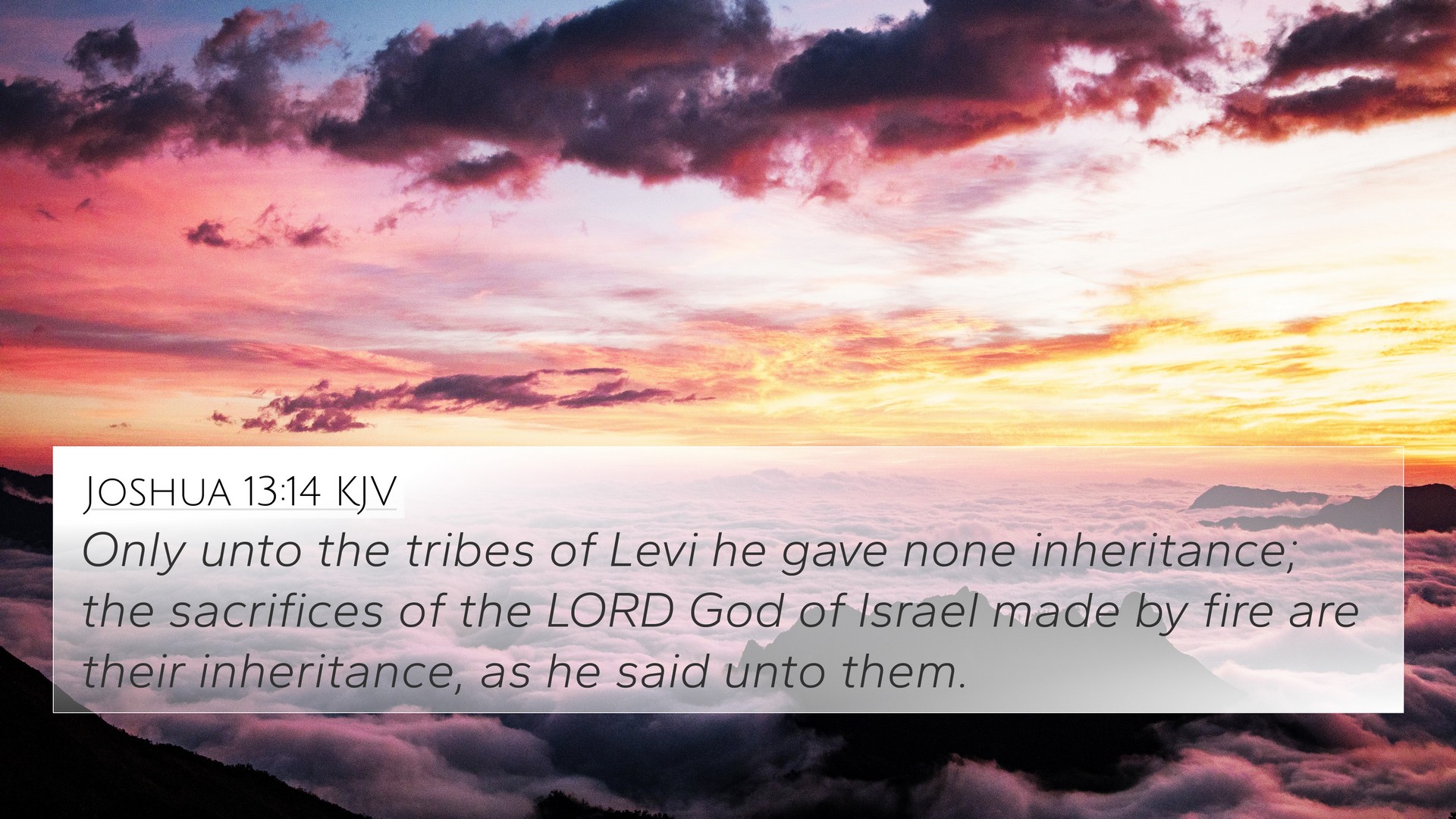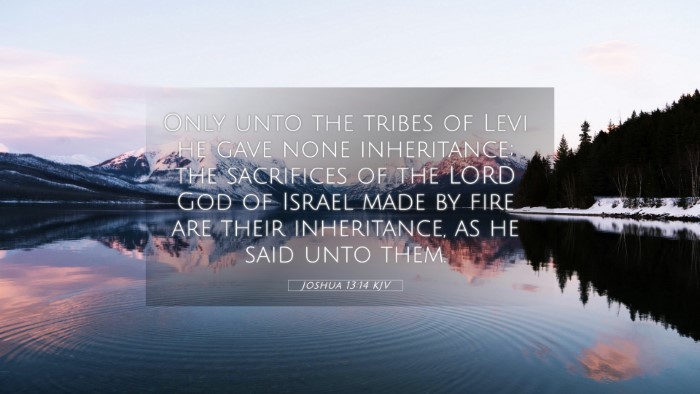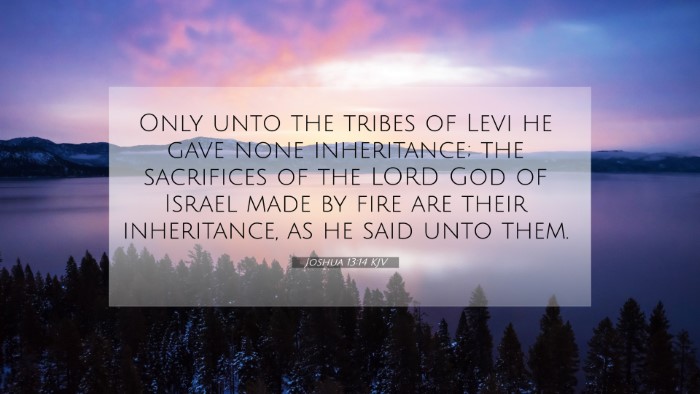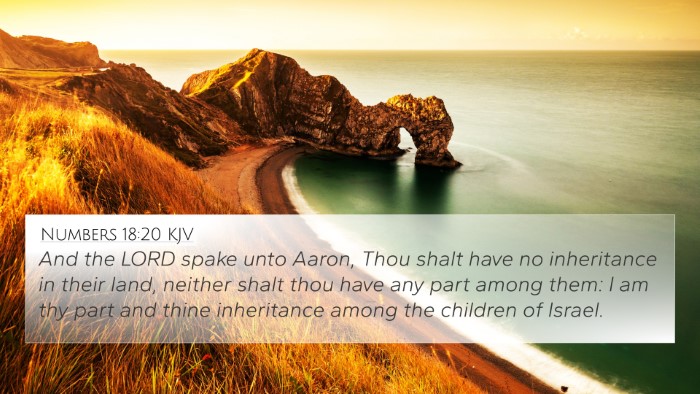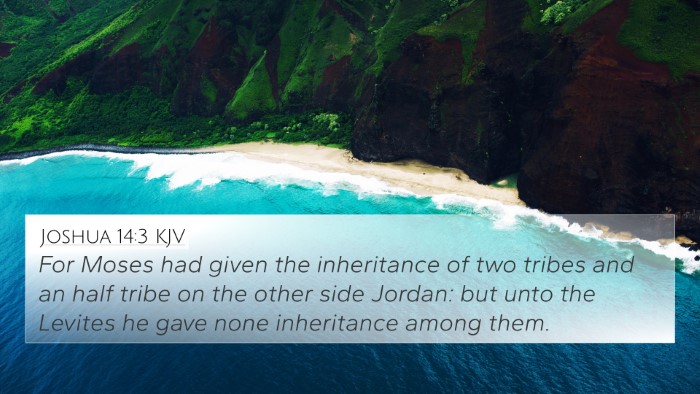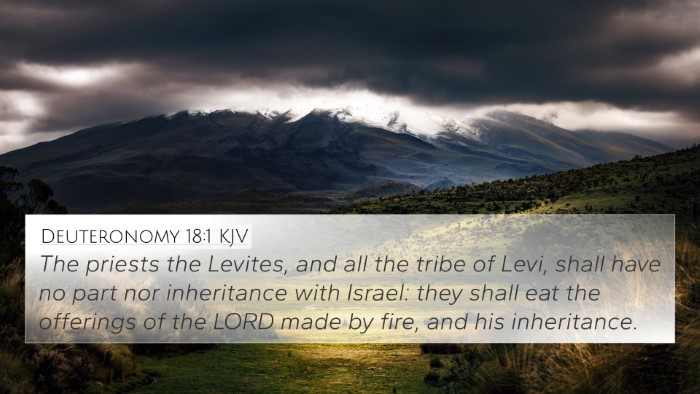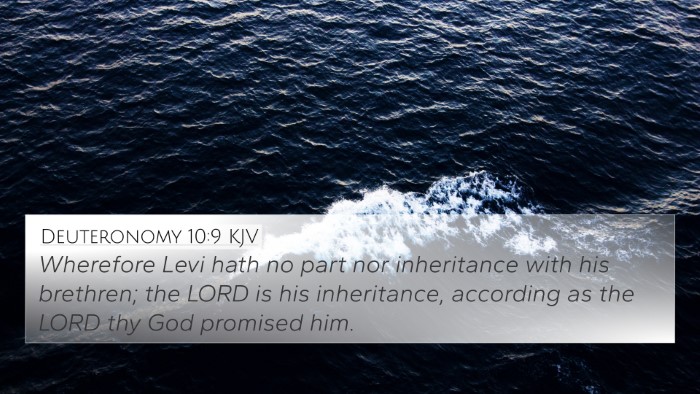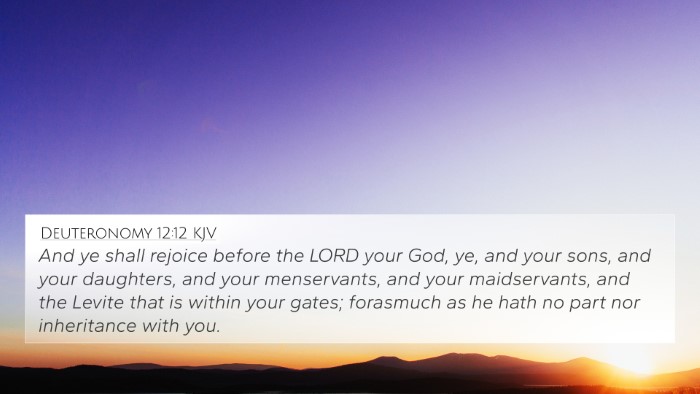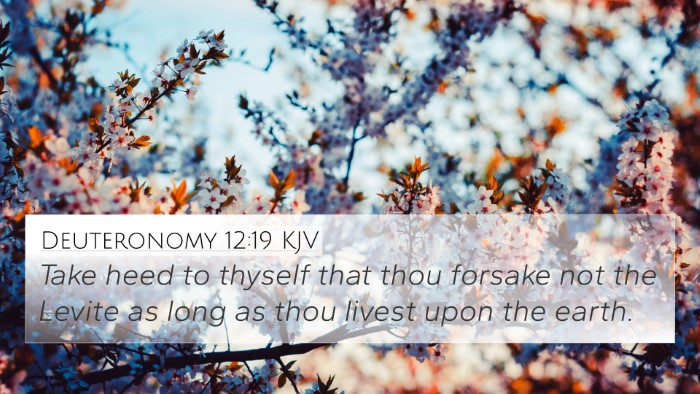Understanding Joshua 13:14
Joshua 13:14 states:
"Only unto the tribe of Levi He gave none inheritance; the sacrifices of the Lord God of Israel made by fire are their inheritance, as He said unto them."
Summary of the Verse
This verse highlights the unique position of the tribe of Levi in Israelite society, which is different from the other tribes who received land as an inheritance. The Levites were designated as priests and were to serve in the worship of God, relying on the offerings and sacrifices made by the people for their sustenance.
Commentary Insights
Combining insights from renowned public domain commentaries:
-
Matthew Henry:
Henry emphasizes that God set apart the Levites for His service and their lack of territorial inheritance was a divine appointment. They were instead to receive the offerings as their provision, reflecting their spiritual inheritance over a physical one, which points to the idea of serving God being their primary purpose.
-
Albert Barnes:
Barnes points out that the Levites' role in the sacrificial system underscored their spiritual function. He notes that their inheritance was strictly spiritual as they fulfilled significant duties regarding the tabernacle and worship. This arrangement serves as a type of foreshadowing of the New Testament’s emphasis on spiritual inheritance through Christ.
-
Adam Clarke:
Clarke discusses the implications of the Levites' unique status, suggesting it shows God’s distinctive plan for His people. The Levites were to uphold the holiness of worship through their distinct lifestyle, thus, maintaining their priestly duties amidst the rest of Israel, which can be seen as a call to purity and dedication in serving God.
Bible Cross-References
This verse connects with several other scripture passages that elucidate its meaning and thematic connections. Here are seven key references:
- Exodus 32:29: Highlights the consecration of the Levites during the sin of the golden calf.
- Numbers 3:6-10: Details the role of Levites in assisting Aaron and his sons in their priestly duties.
- Deuteronomy 10:9: Mentions that the Levites have no part in the inheritance with Israel as their duty is to serve the Lord.
- Deuteronomy 18:1-2: Offers further explanation on the provisions made for the Levites and their dependence on the sacrificial offerings.
- 1 Chronicles 23:13: Affirms that the Levites fulfilled roles in the worship and care of the temple.
- Hebrews 7:5: Discusses the priesthood of Levi in relation to the new priesthood established by Christ.
- 1 Peter 2:9: Connects Levites’ calling to the New Testament idea of believers being a royal priesthood.
Connections and Themes
The verse represents significant connections between Bible verses, calling attention to themes of spiritual inheritance, the nature of divine calling, and the importance of faithful service to God. These themes resonate throughout both the Old and New Testaments, exemplifying the continuity in God’s plan for His people.
Thematic Bible Verse Connections
The separation of the Levites from the other tribes can be seen as a prefiguration of the Christian calling today, where believers are called out to be a people devoted to God. This relates to:
- Matthew 5:14-16: Believers as light in a dark world.
- Romans 12:1: The call to present our bodies as living sacrifices.
- Ephesians 4:1: Walking in a manner worthy of the calling received.
Cross-Referencing Biblical Texts
To deepen understanding and enrich one's study, utilizing tools for Bible cross-referencing such as a Bible concordance and cross-reference guides is beneficial. These resources enable a more comprehensive study of themes and connections, facilitating a deeper grasp of Scriptures.
Conclusion
The analysis of Joshua 13:14 through cross-referencing enhances comprehension of the Levites' unique role in Israel's worship system. The spiritual implications of this verse invite believers today to reflect on their own calling, emphasizing a life dedicated to serving God above all else.
